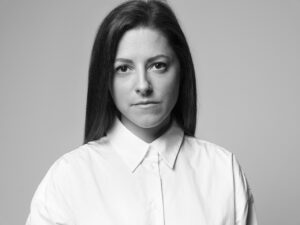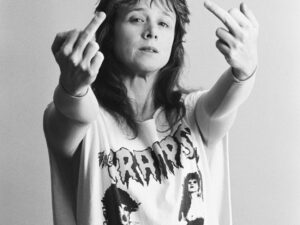Audre Lorde (b. 1934)
A self described black lesbian, mother, warrior, poet, Lorde dedicated both her life and creative talent to confronting and addressing injustices of racism, sexism, classism, and homophobia during a time when it was not normal for a woman to be educating herself on such matters, let along speaking on and against them. At the age of 17, her first poem was published in Seventeen magazine. For eight years, Lorde lived in Berlin as a professor at Frei University and became an influential member of a movement of the black community within Germany. Lorde coined the term AfroGerman and helped push along the notion of intersectionality to an international array of women. A documentary of this period entitled Audre Lorde, The Berlin Years 1984-1992 has won numerous awards and continues to be shown in festivals.
Misty Copeland (b. 1982)
In 2015, Copeland became the first black principal ballerina to be promoted within the American Ballet Theatre company. She speaks out on equal opportunities being granted to all children at a young age, regardless of skin color or interest, especially within the practice of art that is primarily absorbed by and nurtured within the White community. She is a writer with six books to her name, including a children’s series.
Angela Davis (b. 1964)
Philosopher and political activist, my first introduction to Ms. Davis was her book Are Prisons Obsolete? in which she challenges the lucrative penal system that exploits citizens into becoming modern-day slaves. She is the author of 10 other books on class, feminism, and the US prison complex system. She gained her doctorate in Berlin at Humboldt University before becoming director of the feminist department at UCLA. Despite what many at the time called problematic political leanings and her ties to the Black Panthers, Time Magazine honoured her with the title Woman of the Year, 1971.
Kimberle Crenshaw (b. 1959)
If you are interested in structural change and discourse, Crenshaw’s affiliations should be required research. In 1989, she coined the term intersectionality, opening a new avenue of dialogue to find solidarity within our differences. While at Harvard Law School, she was one of the founding organisers within the field of critical race theory. Alongside Barack Obama, Crenshaw created the national program My Brothers Keeper, the five year program that supports young men of color, providing mentorships, summer jobs, and more. Ultimately, Crenshaw was critical of this initiative, as it did not support young girls of color.
Adrian Piper (b. 1948)
Manhattan born conceptual artist and philosopher, in 2018, Piper had a retrospective of her life’s work at MoMA, which included various performances and objects throughout her life that speak on otherness, blackness, passing as white, self analysis, and ostracism. Check out her project entitled My Calling Card, which consists of a collection of business cards explaining her identity to give to those that misidentify her. She currently lives and works in Berlin, and heads her own foundation.
Nina Simone (b. 1933)
While the classically trained Miss Simone lived to see great commercial success with her voice and piano, during the Civil Rights era of the 60s and 70s, she also wrote many heated protest songs. Because of mass boycotts by radio stations and consumers, Nina swapped record labels and also began residing in Switzerland and later the Netherlands. Last year, Simone’s song Mississippi Goddamn was posthumously selected by the Library of Congress for preservation due to it being deemed culturally and historically significant. Her activism extended beyond civil rights; she was also vocally against the Eurocentric beauty standards forced upon black women, and one of her most loved songs I Put A Spell On You is about this internalised dilemma.
Moor Mother (b. 1980)
Relentlessly fired up, many a Moor Mother song can be found on various protest and resistance playlists. While a successful musician and spoken word poet in her own right, her primary focus is on activism. Her partner Rasheeda Phillips created a collective called Black Quantum Futurism, which releases music, essays, and art on modern day and future issues within the black realm. Moor Mother is the current artist in residence, and is putting out a number of projects on a weekly basis. Her music completely transcends genres, and she collaborates with musicians across the board, ranging from industrial to jazz, rap to classical strings.



